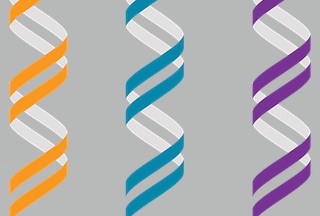‘All of Us’ genetics chart stirs unease over controversial depiction of race
By Max Kozlov,
Nature
| 02. 23. 2024
Some geneticists have expressed their unease about a figure in a high-profile Nature paper that was published earlier this week1, noting that it could be misinterpreted as reinforcing racist beliefs. The figure has reignited a long-standing debate among geneticists about how best to discuss and depict race, ethnicity and genomic ancestry, given how these terms can be misinterpreted and weaponized by extremists.
“The problem is, a lot of people will see figures like this as supporting a viewpoint” that race and ethnicity are closely aligned with genetics, says Ewan Birney, deputy director-general of the European Molecular Biology Laboratory in Cambridgeshire, UK. “And then they build castles in the air from all this.”
Alexander Bick, a physician and geneticist at Vanderbilt University Medical Center in Nashville, Tennessee, who co-authored the paper in which the figure appears, acknowledged in an e-mail to Nature’s news team that “it’s clear that the figure fell short of our intended goal for this paper”. (Nature’s news team is editorially independent of its journal team.) But Bick defended the analysis, noting...
Related Articles
By Arthur Lazarus, MedPage Today | 01.23.2026
A growing body of contemporary research and reporting exposes how old ideas can find new life when repurposed within modern systems of medicine, technology, and public policy. Over the last decade, several trends have converged:
- The rise of polygenic scoring...
By Stephanie Pappas, LiveScience | 01.15.2026
Genetic variants believed to cause blindness in nearly everyone who carries them actually lead to vision loss less than 30% of the time, new research finds.
The study challenges the concept of Mendelian diseases, or diseases and disorders attributed to...
By David Cox, Wired | 01.05.2026
As he addressed an audience of virologists from China, Australia, and Singapore at October’s Pandemic Research Alliance Symposium, Wei Zhao introduced an eye-catching idea.
The gene-editing technology Crispr is best known for delivering groundbreaking new therapies for rare diseases, tweaking...
By Josie Ensor, The Times | 12.09.2025
A fertility start-up that promises to screen embryos to give would-be parents their “best baby” has come under fire for a “misuse of science”.
Nucleus Genomics describes its mission as “IVF for genetic optimisation”, offering advanced embryo testing that allows...




